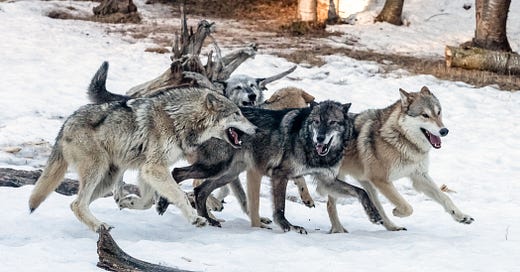As a junior, my high school AP English class did a transcendentalism unit where we read Thoreau’s Walden Pond and Emerson’s essay, “Self-Reliance.” For extra credit, we could read Jon Krakauer’s Into the Wild about the story of Chris McCandless, an idealistic young college graduate who set off on a physical and philosophical journey across the U.S. and didn’t make it out alive.
What I remember taking away from those readings was not necessarily the philosophical writings and thoughts of these dudes, rather a feeling of “WTF were these guys thinking going out on their own like this?” While transcendentalism isn’t just about self-reliance, that was pretty much my sole takeaway at 16 and I thought it was utter bullshit.
I was viscerally angry at McCandless for leaving his young sister behind and not thinking about how much the people he met along the way cared for and worried about him. This off-on-my-own narrative felt distinctly White and male and I didn’t get it. I still don’t. While I am very much an extravert and could be biased by those inclinations, I know from being married to the introvert of all introverts is that we all need other people. We need community and we need to be supported by that community. The idea that we can and should make it on our own is a myth. It’s a myth that has been perpetuated by capitalism and societal forces that have made is live in single-family homes and taught a false narrative of “self reliance.” And so is the idea of a “lone wolf.” Because wolves are, like us, a social species. And not only that, the “fearsome” reputation of a lone wolf is all wrong as well.
In Erica Berry’s Wolfish, she mentions McCandless. She writes:
“He had orphaned himself from his pack, thinking he could survive on self-reliance alone. When humans invoke ‘lone wolves,’ as with terrorists or shooters, we often suggest those wolves are, by virtue of their solitude, exceptionally dangerous. In a wolf’s life, the opposite is true. Dispersing wolves face increased threats from other packs, as well as the pressure of their own hunger. Biologists now believe wolves form such a tight-knit social connections because they must eat. In many ways the strength of a wolf comes not from the size of its jaw but the interdependent choreography of its pack. Growing up, a pup learns not just self-reliance but how to coordinate a hunt, interact with outsiders, and take care of siblings. What is lost when we equate strength—or even bravery—with going off solo, and not the messy task of digging in to stay?
When I read that passage, I thought back to my teenage self, seething at McCandless’s carelessness for his own life and the value that his life had for those around him. I realize that was rooted in my very deep-rooted desire and need for my own community. While it wouldn’t be decades until I articulated the idea that I recognized a deep need to form an interdependence with other humans, it was something that held deep. But I was also on the precipice of leaving my pack—heading off to college a little more than a year after I read Into the Wild. I both needed and wanted to be close to my kin but also yearned to find independence outside of them. Which is also quite wolfish.
I was like an adolescent wolf at that moment feeling my instincts both as the need to be a part of the pack, but then the need to create my own unit. Berry’s book tracks the life of Oregon’s most famous wolf, OR-7 who wandered alone for a good long time before establishing his own pack, one that would mark the illustrious return of wolves to Oregon. But he did find his pack and lived a long eleven-year life (long for a wolf in Oregon who always is at risk of being shot by landowners).
But OR-7’s ability to thrive in the wild was not because he went out on his own, it was because he followed his instinct to find—or make—his own pack. And I think that’s where we humans tend to differ. It’s not that we don’t have that instinct, it’s that we’re out of practice thanks to the isolation our society has created between and among us. And also that it takes work to find your community. It’s hard work, but the gifts are tenfold. We see the peril of this at this current moment where we are all separated from one another in different factions. Unlike the lone wolf, we do tend to be more dangerous when we’re isolated, but it’s more of that collective isolation that is a danger. We’ve learned to distrust one another and we see what that has been doing to our society. So we need find that pack-like instinct in ourselves, to continuously work to find and create our pack to counter that isolation.
“I learned that community didn’t just gather wherever you rolled, accumulating like some triumphant snowball,” writes Berry. “We inherit our biological families and decide how close to keep them. We have chosen families only if we try.”
This post, of course, is yet another way of me saying what I wrote in a post a few weeks ago—invest in your community.
Be like the wolf. Find your pack.






Yes so true! We cannot survive on our own...
I can't speak on other countries, but the US has a serious case of what I like to call toxic individualism. Somewhere in the cultural milieu of Cold War anti-communism and 80s action movies, we've been convinced that going it alone is somehow better.
I'm somewhat active in the survival/preparedness community and, as you've alluded to, it's even more prevalent there. But I have noticed some more "leftist" prepper spaces emerging that focus on community resilience.